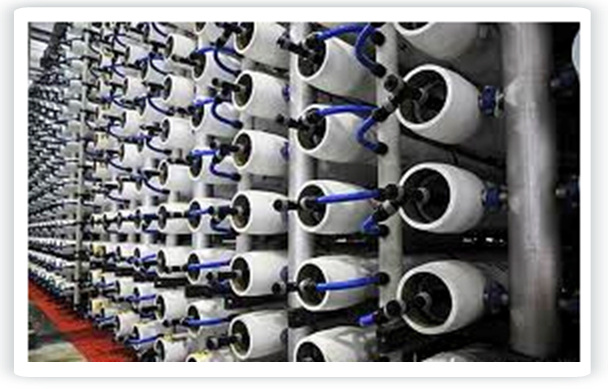The filtration by membrane technologies are increasingly being used in the productive processes of numerous industries. Their capacity to separate extracts and specific natural essences at low or ambient temperatures makes filtration by membranes a more profitable technology than other traditional methods.
The type of membrane chosen is an important factor for guaranteeing the function and optimum outcome of the process. There are different types of membrane that adapt to different applications according to the level of filter required. The most common ones are spiral membranes, ceramic membranes, stainless steel membranes, tubular membranes, hollow fiber membranes and plate & frame membranes.
Filtration by membranes is a pressure technology that is used to separate various liquids. Its different modalities are microfiltration, ultrafiltration, nanofiltration and reverse osmosis.
Reverse osmosis is particularly suited to processes of dehydration, concentration/separation of substances or the treatment of residual liquids. On the one hand, it is very useful for the concentration of dissolved or suspended solids, and on the other, for obtaining a rejected liquid that contains a very low concentration of dissolved solids.
Ultrafiltration is a process of selective division that is normally used to divide milk, whey and proteins. It concentrates suspended solids and solutes with a molecular weight of more than 1000. The rejected liquid contains organic solutes with a low molecular weight and salt.
Nanofiltration is normally applied for demineralization, color removal and desalinization.
Microfiltration is a process of low pressure flow via a membrane for the separation of colloids and suspended particles in the range of 0.05 – 10 microns. Microfiltration is used for fermentations, the clarification of stock and the clarification and recuperation of biomass.
Industrial applications
Filtration by membrane can be applied to an infinite number of industries whereby chemical processes are involved. The food industry, with important specifications in the dairy and sugar, pharmaceutical, biotechnological and chemical sectors, are areas in which filtration by membrane can be very useful.
The application of diverse filtration by membrane techniques in the food industry covers an infinite number of areas. The most common include the concentration of egg whites, the clarification and pre-concentration of fruit juices, the concentration and extraction of the ashes of porcine, bovine or bone gelatin, the clarification of meat brine for the removal of bacteria and reuse of the brine, the concentration of vegetable and plants such as soy, canola and oats and the removal of alcohol from wine and beer.
Dairy industry: filtration by membrane is a valuable part of the production process, especially in the manufacture of dairy ingredients. Its applications can be divided into three categories: applications to milk, applications to whey and other applications such as clarified cheese brine.
Starch and sweetener industry: the main benefit is the increase in the performance of the products, including the clarification of corn syrups such as dextrose and fructose, the concentration of rinse water from starch, the enrichment of dextrose, the depyrogenation of dextrose syrup and the division/concentration of maceration water.
Sugar industry: filtration by membrane can be used to clarify unprocessed juice without using primary clarifiers, thus eliminating many ambient problems and improving the quality and the performance of other traditional methods. The membranes can also clarify, divide and concentrate various sugar solutions in the production process.
Chemical industry: many chemical processes use filtration by membrane to desalinate, diafilter and purify dyes, pigments and optical brighteners, to clean the wastewater and rinse water currents, for the concentration and dehydration of minerals such as kaolin clay, titanium dioxide and calcium carbonate, the clarification of caustic agents, the production of polymers or the recuperation of metals.
Pharmaceutical industry: the harvesting of cells or the recuperation of biomass is an important step in the process of fermentation, especially when manufacturing products such as antibiotics. Filtration improves production as well as reducing the operator’s workload and the maintenance costs. The membranes are also a standard part of the industrial production lines for enzymes, when concentrating enzymes prior to other processes.

